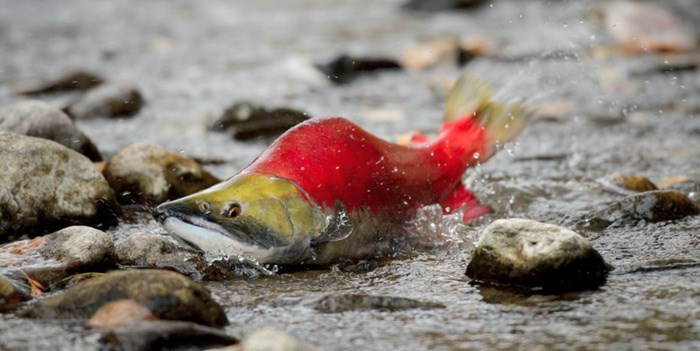
More than 50 of British Columbia's top chefs are calling on the province to end leases for open net-pen salmon farms dotting coastal waters.
The group has sent a letter to the forests and agriculture ministers, urging them to terminate salmon farm operations opposed by First Nations as those salmon farm leases come up for renewal in June.
Chef David Hawksworth of Hawksworth Restaurant, which ranked third on the 2017 list of Canada's top 100 restaurants, says the food industry can't thrive unless the food sources it relies on are also healthy.
He says chefs are dedicated to serving the best in terms of ethical sourcing, taste and nutrition, and he and the other chefs say it is vital that B.C. develops and maintains sustainable food sources.
Scientist David Suzuki also added his name to the protest letter sent to the ministers, saying science shows that open net-pen farms create a risk to wild salmon from parasites and disease.
The B.C. government is considering to renew tenures for 20 open net-pen salmon farms in the Broughton Archipelago, off the coast of northern Vancouver Island, which is a key migratory route for wild salmon.
"It's clear that these salmon farms are bad for the fish and the environment and, as a result, our industry," says Hawksworth.
Chef Robert Clark from The Fish Counter said "we stand united but it's not about us. It's about saving the salmon. It's about saving small communities. It's about respecting the rights of First Nations."
Chef Jeremy Belcourt of Salmon n' Bannock, a Vancouver restaurant serving First Nations-inspired cuisine, says B.C. is supposedly committed to upholding the United Nations Declaration on the Rights of Indigenous Peoples requiring consent on projects in First Nations territories.
"Clearly, that's not happening here," he says, adding that salmon farming — as opposed to nurturing healthy, sustainable wild salmon populations — is "its own form of colonization."
John Werring, senior science and policy advisor with the David Suzuki Foundation, said their message is not anti-aquaculture but aimed at protecting wild salmon.
"Let's get these open-net pen fish farms out of the water and start raising fish on land in closed containment facilities that isolate the fish in those farms from the wild stocks," Werring says.


